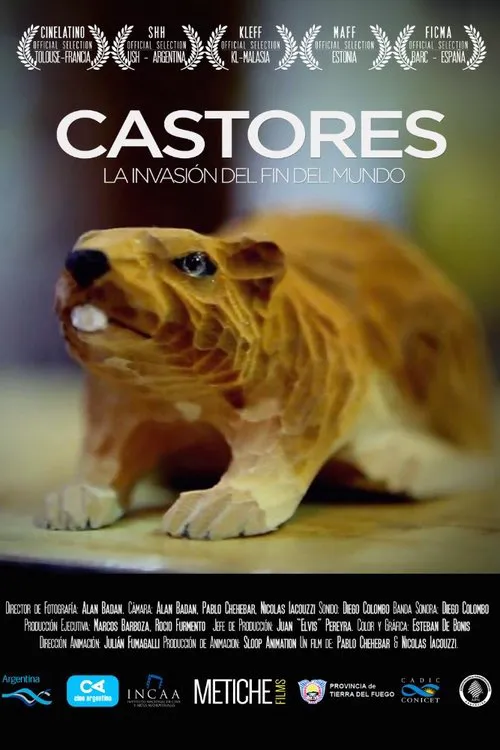Beavers: Patagonia invaders

Plot
In the late 1940s, the island of Tierra del Fuego in southern Patagonia welcomed an unlikely arrival - twenty Canadian beavers, brought to the region by humans for commercial fur production. Initially, these furry creatures seemed like an exotic addition to the island's ecosystem, but it didn't take long for them to reveal their true nature. Like a force of nature, the beavers began to multiply exponentially, spreading throughout the island's terrain at an alarming rate. Their insatiable hunger drove them to gnaw down trees, disrupting the delicate balance of Patagonia's forests, rivers, and wildlife. Within a few decades, the beavers' sheer numbers turned them into a force to be reckoned with. They began to destroy entire stands of trees, causing soil erosion and silting up the rivers, which had a knock-on effect on the local wildlife that depended on the crystal-clear waters for survival. It soon became apparent that if left unchecked, the beavers would bring about a catastrophic collapse of the ecosystem. Enter a cast of characters - wildlife conservationists who are convinced that the only viable solution to the problem is to eradicate the beaver population, estimated at around 150,000. Armed with data and expert analysis, they argue that if the beavers are allowed to thrive, they will destroy the very fabric of the ecosystem, spelling disaster for the island's fragile biodiversity. However, a counter-movement is gaining traction, spearheaded by some of the most recognized specialists in the field. Led by scientists who have spent years studying the beavers, they believe that an eradication program is simply impossible. According to them, the beavers have become an integral part of the ecosystem, and their removal would have unforeseen and far-reaching consequences. As the debate rages on, the situation in Patagonia becomes increasingly surreal. While the debate about the beavers' fate continues, a shrewd businessman sees an opportunity to turn the crisis into a marketing boon. A man dressed in a beaver costume distributes flyers for the Cerro Castor, a luxury ski resort on the island, promoting the notion of 'Beaver Hill.' It's a taste of the macabre: as the beavers pose a threat to the very existence of Patagonia's ecosystem, the locals see them as a potential cash cow. In this topsy-turvy world, hunters capitalize on the beavers by seeking subsidies from the government, while scientists are at a loss to come up with effective solutions to manage the beaver population. The island's rangers, tasked with protecting the land and its resources, do their best to mitigate the beavers' damage, but it's a losing battle. Meanwhile, restaurants see the beavers as an opportunity to serve a new, exotic delicacy to the island's tourists, adding a sinister layer to an already precarious situation. As the years go by, the beavers become an increasingly contentious issue. While some see them as invasive pests, others view them as an integral part of the ecosystem, deserving of protection and coexistence. Amidst this turmoil, the Patagonian government is forced to grapple with the question of how to manage this invasive species, all the while grappling with the potential economic and environmental consequences of their actions. Beavers: Patagonia invaders is a fascinating documentary that plunges audiences into the heart of the debate, offering a nuanced exploration of the complexities and consequences of human interactions with the natural world. By shining a light on this extraordinary, real-world conflict, the film raises fundamental questions about our relationship with the environment and the creatures that inhabit it. Ultimately, the film leaves the viewer to ponder the delicate balance between human needs and the needs of the natural world, inviting reflection on our role as stewards of this precious, fragile planet.
Reviews
Recommendations




